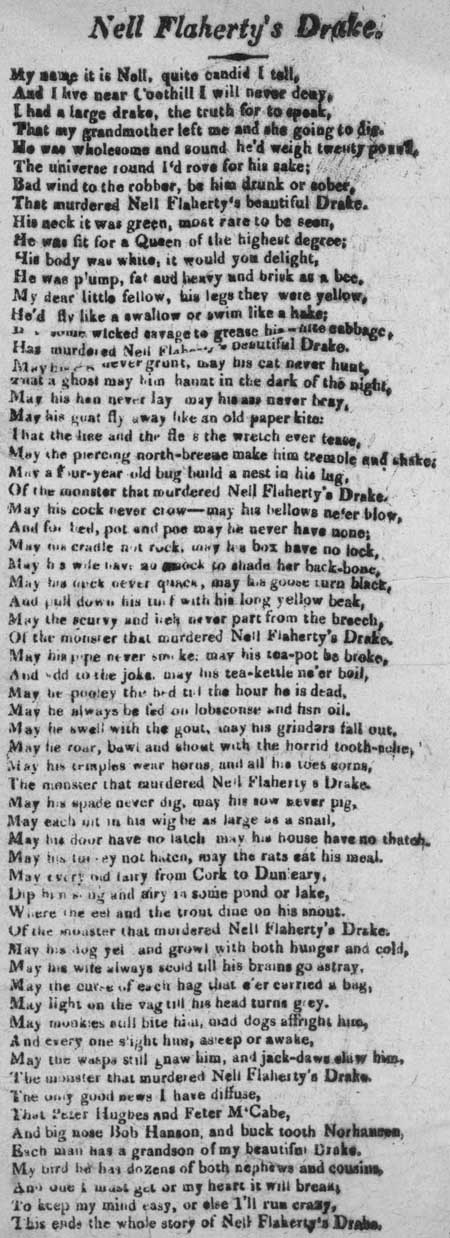Commentary
This ballad begins: 'My name it is Nell, quite candid I tell, / And I live near Coothill I will never deny, / I had a large drake, the truth for to speak, / That my grandmother left me and she going to die.' 'Nell Flaherty's Drake' is an anonymous Irish ballad from the nineteenth century. The drake of the title is believed to be a coded reference to Robert Emmet (1778-1803), who helped to plan and led an uprising against British rule in Dublin in 1803. The uprising went wrong after an explosion at an arms depot, and Emmet was captured and hanged for his part in the uprising and the assassination of the Lord Chief Justice. Nell Flaherty represents Emmet's fiance, Sarah Curran, (1782-1808). The author curses those (i.e. the British authorities) who killed Nell Flaherty's drake and urges the readers to keep up the fight. Irish Home Rule was a volatile subject in Britain in the nineteenth as well as the twentieth century, hence the coding in this song. Early ballads were dramatic or humorous narrative songs derived from folk culture that predated printing. Originally perpetuated by word of mouth, many ballads survive because they were recorded on broadsides. Musical notation was rarely printed, as tunes were usually established favourites. The term 'ballad' eventually applied more broadly to any kind of topical or popular verse.
View Transcription | Download PDF Facsimile
|
 |
Probable period of publication:
1830-1860 shelfmark: L.C.Fol.70(142a)
 View larger image
View larger image
|


